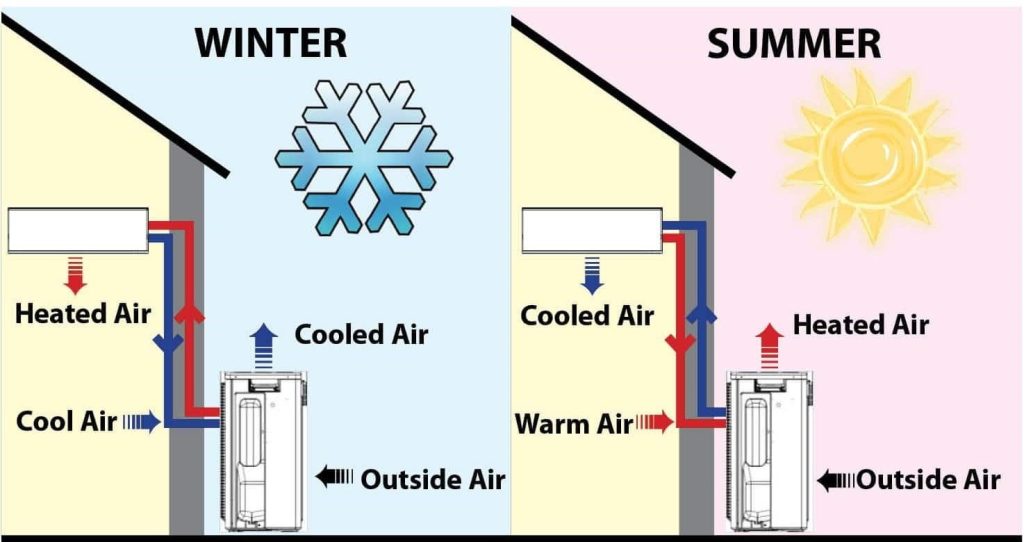what is a heat pump?

basic operation
Heat pumps are heating units that move heat between the inside and outside of your home instead of generating heat for your home like a traditional boiler or furnace. They can work year-round, removing heat from your home in the summer to keep it cool, with results like a traditional central air conditioning system, and also bringing heat into your home in the winter to keep it warm. Because they do not actually produce heat, they are best used as the primary home comfort system in climates with only moderate heating and cooling needs. In the coldest climates, they can be used as a supplementary system, but most are unable to keep homes sufficiently heated in temperatures consistently below freezing.
heat pump types
The benefit of a heat pump is that it is run on electricity and requires no fossil fuels to operate. Because of this, they can operate on as little as one quarter the energy cost of a boiler or furnace. Heat pumps can be used in homes with existing ductwork but can also come in the form of a ductless mini-split heat pump. There are three types of heat pump systems: geothermal, water source, and air-to-air; the most common being air-to-air. Each of these systems have their benefits, so it requires some research and a professional opinion to determine the best type for your situation and budget.
heat pump features
The technology of heat pumps is also constantly evolving, with new features being offered by multiple brands. When shopping for a heat pump, consider the benefits of a two-stage compressor or variable-speed scroll compressor over a fixed-stage compressor. These compressors are much more efficient than earlier models, with the ability to respond to the demands of a home quicker and easier. A scroll compressor also operates at a much quieter level, which many homeowners prefer.
efficiency options
When outdoor temperatures drop below 32 degrees Fahrenheit, heat pumps begin to lose efficiency. Usually, this is when an electric-resistance auxiliary heating system kicks in to continue warming your home. This auxiliary heat system is not the most efficient option in many cases because of the high usage of electricity necessary. By choosing a hybrid heat pump system instead, a gas furnace can be installed as a secondary heating system that operates in situations that are too cold for the regular heat pump. By having the option of changing heat sources, the system remains more efficient.
contact us
Residents of Lancaster County can request a free heat pump installation estimate by visiting our website at www.weaverenergy.com or calling our office at (717) 626-7169 during regular business hours. We look forward to assisting you find the best home comfort system for your lifestyle!